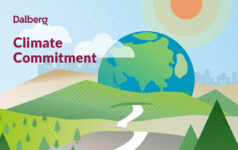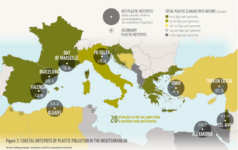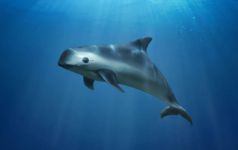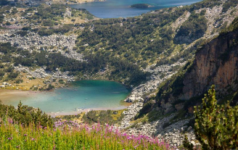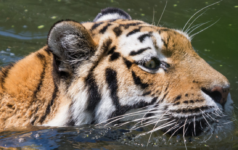Dalberg uses cookies and related technologies to improve the way the site functions. A cookie is a text file that is stored on your device. We use these text files for functionality such as to analyze our traffic or to personalize content. You can easily control how we use cookies on your device by adjusting the settings below, and you may also change those settings at any time by visiting our privacy policy page.
Dalberg has co-authored a report with the WWF “Covid-19: Urgent Call to Protect People and Nature” that details the root causes of the Covid-19 crisis and points to a turning point where the relationship with the natural world must be healed if the risk of future pandemics is to be mitigated.
The WWF has monitored issues including the trade in wildlife, deforestation, and the encroachment on nature for many years. Working in partnership with Dalberg, new insights have emerged from this ongoing data collection that link humanity’s negative impact on the natural world to the Covid-19 pandemic and the emergence of a growing number of other zoonotic diseases, which originate in animals and transmit to people. The new report, ‘Covid-19: Urgent Call to Protect People and Nature’ captures what must be done to protect natural assets and stop future diseases from emerging and spreading.
At the core of the report is the alarming rate in numbers and frequency at which zoonotic diseases are emerging, and the preventative actions that must be taken by governments, companies, civil society organizations and the public in order to protect our health, economies and ecosystems. These new diseases pose a grave threat, as sources of deadly recent pandemics including HIV/AIDS, Severe Acute Respiratory Syndrome (SARS), Swine Flu, Middle East Respiratory Syndrome (MERS), Ebola and most recently COVID-19.
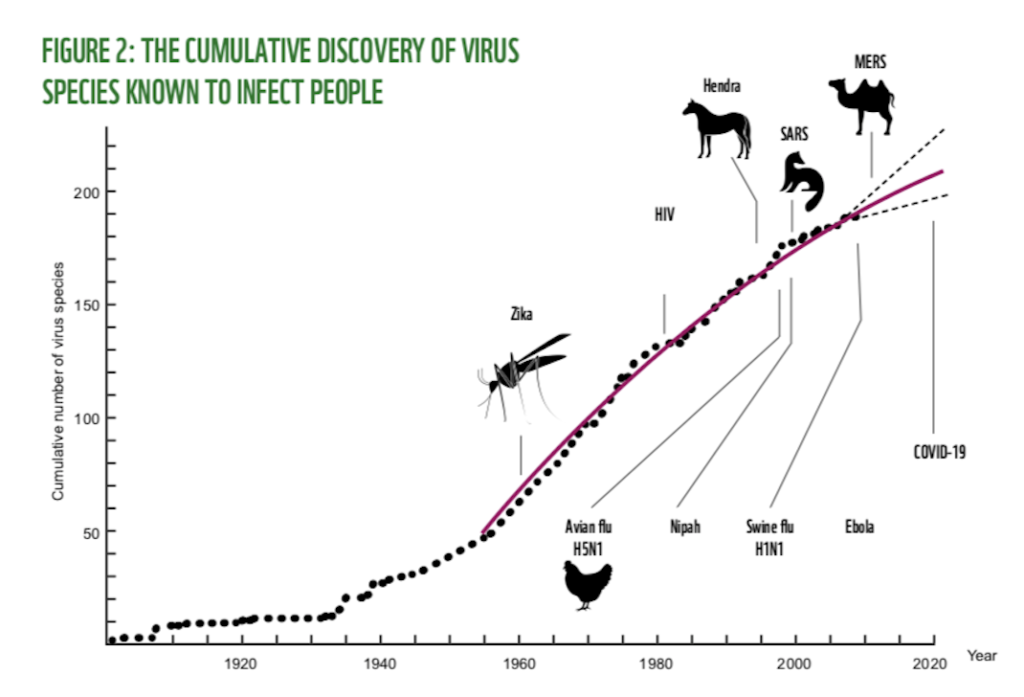
Zoonotic diseases show how human health and nature are closely interconnected
The increase in zoonotic disease outbreaks is a symptom of a broken relationship between humans and the natural world, and is likely to worsen. People increasingly encroach into natural ecosystems, resulting in accelerating levels of contact between humans, wildlife and livestock. This results in additional exposure to new animal pathogens and creates dangerous conditions for spillover from one species to another.
Interactions with nature can expose people to a wide range of animal diseases. In fact, approximately three to four new infectious diseases emerge each year, most of which originate from wildlife. Over the last 30 years, approximately 60-70 percent of the new diseases that emerged in humans had a zoonotic origin.
Animal pathogens can infect humans directly through contact with the wild animals that are natural carriers of these diseases, or indirectly by transmission through intermediate hosts, such as livestock and domestic or peri-domestic animals that live in proximity to humans. These intermediate hosts act as “mixing vessels” that can lead to the genetic variation of diseases, enabling them to infect humans.
Covid-19, linked to a disease prevalent in horseshoe bats, is the latest example of this type of spillover and has demonstrated the grave consequences of unregulated human-wildlife interactions. However, this is not a new phenomenon, as a number of other deadly global pandemics have resulted from species spillover.
While it is more difficult to trace the exact drivers for the numerous Ebola outbreaks over the last 20 years, many researchers have directly linked the rates of deforestation in West and Central Africa to an increased likelihood of Ebola outbreaks. Researchers believe that the extensive deforestation in these regions increases contact between humans and potential Ebola host species, such as fruit bats and primates, leading to greater potential for transmission from hosts to humans.
The initial SARS outbreak is likely attributed to human contact with infected palm civets and raccoon dogs in a wildlife market in Guangdong province. Researchers found that several of the early SARS patients were involved in selling or preparing wildlife for consumption, likely increasing their exposure to the virus. Other cases were linked directly to a restaurant where six SARS-CoV-positive civets were housed in cages. Although researchers cannot be certain that the initial transmission from animals to humans took place in a wildlife market, it is likely that wildlife markets and restaurants were central to the spread of SARS.
The cause of increased numbers of zoonotic diseases
WWF and Dalberg found that two widespread environmental risks are linked to the accelerating emergence of zoonotic diseases: unsustainable food systems driving the large-scale conversion of land for agriculture, and the trade of high-risk live wild animals and their meat.
On the one hand, driven by unsustainable food systems, the large-scale conversion of land for agriculture is increasing interactions between wildlife, livestock and humans. Land conversion is destroying and fragmenting forests and other natural habitats around the world, resulting in higher levels of contact. This problem is only set to worsen as the challenge of feeding a growing population increases and diets shift – with the public being urged to change their dietary and consumption habits towards more sustainable choices that will help solve the problem.
The land clearing that results from greater demand for food also contributes to increased human-animal contact. Since 1990, 178 million hectares of forest have been cleared, which is equivalent to the size of Libya. Most habitat loss associated with agriculture is attributed to just three commodities: beef, soy and palm oil. As a result of extensive land conversion, about 70 percent of forests globally are now within one kilometre of a forest edge and are exposed to further fragmentation.
To tackle unsustainable food systems, the report calls for legislation and policy actions to eliminate deforestation and conversion from supply chains, and for support from industry and civil society to ensure all production and consumption of agricultural commodities are free from deforestation and conversion of natural ecosystems.
The trade of high-risk live wild animals and their meat is the other biggest factor contributing to the acceleration of zoonotic disease. The illegal trade of wild animals and unsafe handling practices increase human exposure to animal pathogens and lead to the movement of host species and animal pathogens across geographies. Every year, hundreds of thousands of wild animals are traded across international borders for commercial purposes, often in cramped and unhygienic conditions.
In addition, the poor safety standards associated with the unregulated sale and consumption of wild animal meat in markets and restaurants, presents further opportunity for human contact with wild species, and in turn increases exposure to zoonotic diseases. However, global urban demand for wild meat as a culinary delicacy is growing, driving increased sale and consumption, and increasing the potential for exposure to diseases. The report calls for governments to halt the high-risk wildlife trade and increase monitoring and enforcement to combat illicit wildlife trade.
In places where the consumption of wild animals is a necessary source of protein, particularly for rural populations in developing countries, investment in safer, more sustainable sources of protein is needed to avoid the risk of exposure to dangerous pathogens – as evidenced with the 2014 Ebola outbreak. The report urges governments to support vulnerable communities by protecting their food security and livelihoods in sustainable and resilient ways.
The need for systemic change that addresses the environmental drivers of pandemics
The pandemic has shown that whether tackling environmental issues or health crises, solutions must recognize the deep interconnectedness of different systems. Cross-cutting responses are required, such as promoting more sustainable and efficient food systems, encouraging healthier and more sustainable diets, reducing overproduction and consumption, and moving towards nature-positive and climate-neutral financial systems that incorporate environmental risks in their decision-making processes.
These systemic solutions must be coordinated between different actors, including governments, the private sector, the public, IPLCs (indigenous peoples and local communities), and environment, animal and health specialists, leading to a general societal shift to embrace a healthier relationship with the planet.
The power of global responses to solve urgent challenges and drive sustainability forward
An unparalleled opportunity now exists to work together to address the unsustainable pressures that are being placed on the environment, which are risking the health of current and future generations.
The crisis has demonstrated the power of global responses to drive forward systemic changes, with unprecedented shifts in the way that communities and people behave – from respecting social distancing to hundreds of thousands of people volunteering to support the crisis response. Government investments in response and stimulus packages have been unprecedented, representing 20 percent of GDP in Germany (€750 billion), to 10 percent of GDP in the US (US$2 trillion). By the end of March 2020, over 100 countries worldwide had instituted comprehensive response programmes.
Now, as governments face the challenges of rebuilding economies, stakeholders can work together to fix humanity’s broken relationship with the natural world. New WWF-commissioned research shows that there is overwhelming public support across Southeast Asia for a ban on illegal and unregulated wildlife markets and decreasing willingness to buy and consume wildlife. Similarly, a recent polling of public opinion in 14 countries found that 65 percent of respondents supported a “green economic recovery” process that would prioritize the environment and climate change within it.
Now is the moment to seize the opportunity to “build back better”. This includes agreeing a ‘New Deal for Nature and People’ to halt and reverse the loss of nature and biodiversity towards a nature-positive world by 2030.
A pivotal moment where the world must take action to build a safer future for people and the planet
COVID-19: Urgent Call to Protect People and Nature shows that by tackling the key drivers of illegal and high-risk wildlife trade and by increasing the sustainability of food systems through eliminating deforestation and conversion from supply chains, stakeholders have the power to make transformative changes to reduce the impact of environmental drivers on human health.
There is an opportunity in 2020-21 to make these changes by seizing key policy moments. 2020 was dubbed a “super year for Nature” and despite the crisis many critical events for driving transformational shifts will still take place, including the UN Biodiversity Summit. Now is the moment to reframe humanity’s relationship with nature, reduce the risk of new zoonotic diseases emerging and recommit to the 2030 Agenda for Sustainable Development.
Download the full report here.

